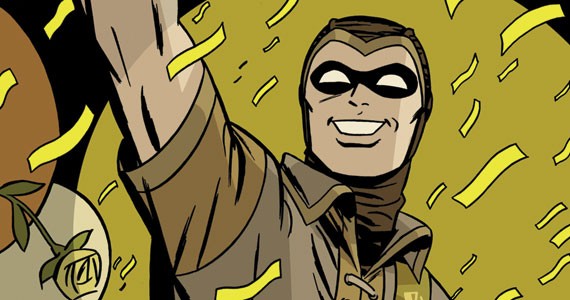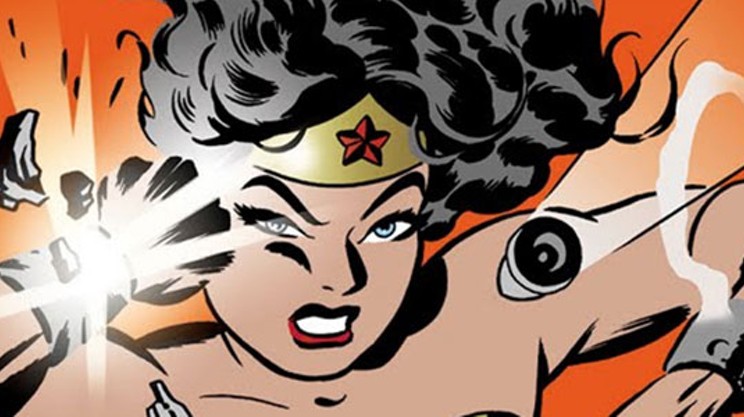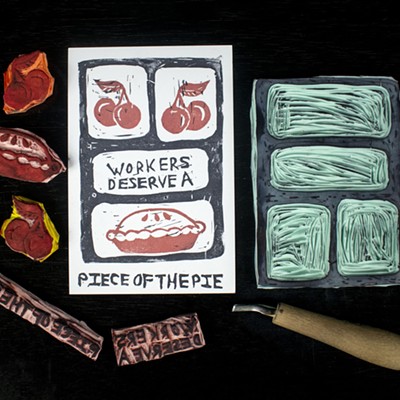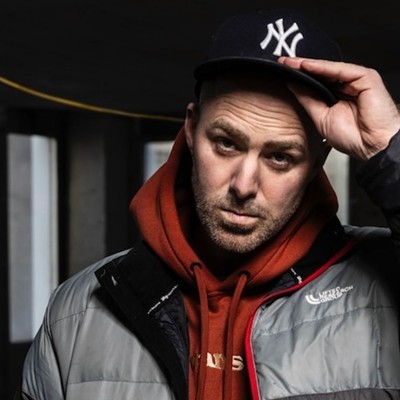DC Comics and Darwyn Cooke's Before Watchmen: Minutemen, gets away from the good guy versus bad guy trope and tells a well-crafted story of human struggle. by Kathleen Higgins
Peter Parker was motivated by the knowledge of the great responsibility that comes with great power. Bruce Wayne became Batman because of the tragic death of his parents. Motivation, why people do and become what they do, is at the heart of almost every comic book character's journey, be it into heroism or villainy. For Nova Scotia-based artist Darwyn Cooke, the idea of motivation was an intriguing enough reason to move past his trepidation at tackling Before Watchmen: Minutemen, DC's new take on Watchmen, one of the most popular and fiercely-loved stories of the comic genre.
"Everybody has their own reason for what they do, everyone has an agenda," Cooke says on the phone from his home outside of Sheet Harbour. Cooke believes that the Minutemen, the progenitors of the Watchmen only briefly touched on in Alan Moore and Dave Gibbon's original 1986 stories, are a disparate group "brought together by certain people's need for attention or fame," which is what makes them such an intriguing and fertile ground from which to build a new story. "Even the good guys are kind of in it for the attention. Even the worst of them wants to do good," says Cooke. "A good guy or a bad guy is a bore. It's the people struggling in the middle where all the great drama is."
Readers can expect to be drawn in by the first issue's Golden-Age look and feel, and by the Dragnet-style re-introduction to the Minutemen characters. These straightforward narratives and the expectations they may set up, however, are just intended to get readers interested. Cooke believes that the stories found in upcoming issues will surprise even the most cynical fan, and his take on the characters in this initial six-issue series is an attempt to "draw people in with my own bullshit, and then turn it all upside down on them."
So what is Cooke's own motivation for taking on a project involving characters originally created by the notoriously fierce and frank Alan Moore, a man who anticipated "spitting venom all over" the 2009 film version of Watchmen and who fears that the desire for profit and the exploitation of original ideas is so entrenched in the creative industry that it's only a matter of time before we see "Johnny Depp playing Captain Crunch"? Despite grumblings on internet fan-forums, and even criticisms lobbed by Moore himself, Cooke insists that one particularly common accusation is way off the mark. "'Oh the money this, the money that', that is so much bullshit. People may think that we're misguided but there's not anyone involved in this that's not aiming to shoot the lights out. You know, let it fail or not, that's for the readers to decide, but the cold or calculated way we're being characterized, I don't know that that's fair." It's not the potential for profit that moved Cooke to deviate from his typically "all-ages"-style of work and delve into the complex, dark and violent world of the Minutemen, but the potential he saw to build on what was barely discussed in Watchmen. Though he turned down the initial offers to work with these characters, the opportunity to explore the nature and value of individual "truths" and to get to the heart of just what motivates these characters to take up masks and costumes, eventually proved too hard to resist.
"I'm not Alan Moore, not by any means, but there's a challenge there and that's the one thing that can keep me in this type of game," says Cooke. "Give me something impossible to do and I will try to do it. The more impossible it is, the harder I'll try."















